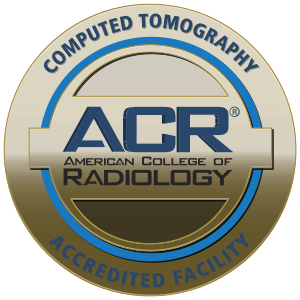Prescriptions Are Not the Only Area Facing Change
In recent years, the healthcare industry has faced a reckoning over its unsustainable costs, with many businesses and consumers grappling with rising expenses. One major voice addressing this issue is billionaire entrepreneur Mark Cuban, who has successfully upended the pharmaceutical industry by leveraging transparency and affordability through his Cost Plus Drugs initiative. Cuban’s approach offers valuable insights into how other sectors, such as diagnostic imaging, might similarly be poised for further healthcare disruption by innovative, low-cost providers offering services like MRI and CT scans.
Dial in on the Details: Explore the factors that affect the costs of MRIs and CT scans in a healthcare plan.
Cuban’s Disruption of the Pharmaceutical Industry
The pharmaceutical industry has long been criticized for its inefficiencies and lack of pricing transparency. With middlemen driving up costs, patients and healthcare providers have faced exorbitant prices for essential medications. Seeing an opportunity for disruption, Mark Cuban launched Cost Plus Drugs, a company designed to bypass these intermediaries and offer medications at drastically lower prices by providing direct-to-consumer options.
Cuban’s model emphasizes full transparency: the price of each drug, the cost of manufacturing, and the markup are all made clear to the consumer. This contrasts sharply with traditional pharmaceutical practices, where prices are often obscured by layers of complexity, making it hard for consumers to understand what they are paying for. By simplifying the process and lowering costs, Cuban has empowered consumers and forced competitors to rethink their pricing strategies — and done so while calling out CEOs to explore further ways to manage healthcare costs.
Rising Healthcare Costs and the Employer’s Dilemma
While Cuban’s work in pharma is noteworthy, it also has broader implications for the overall healthcare industry, particularly when it comes to employers. As healthcare costs continue to rise, businesses are struggling to provide affordable insurance options for employees. In a recent statement, Cuban warned that these skyrocketing costs are unsustainable for employers and that they should explore value-based care models to manage healthcare spending more effectively.
Employers, who traditionally rely on insurance companies to manage costs, may benefit from alternative providers and solutions that focus on reducing unnecessary expenses. Value-based care, which incentivizes healthcare providers to focus on outcomes rather than the number of services rendered, aligns with this need for cost control and improved efficiency. Cuban’s success in reducing drug prices could inspire businesses to seek out similar solutions in other costly areas of healthcare.
Get answers to your questions: Explore our frequently asked questions for employers.
The Parallel Between Pharma and Diagnostic Imaging
Just as Cuban identified the inefficiencies in the pharmaceutical sector, diagnostic imaging — specifically MRI and CT scans — presents a similarly ripe opportunity for healthcare disruption. Imaging services are notoriously expensive, often inflated due to hospital overhead, administrative fees, and opaque pricing structures. For consumers, the true cost of an MRI or CT scan can be difficult to determine until after the procedure, leaving them vulnerable to unexpectedly high bills.
A low-cost, high-quality MRI or CT scan provider could challenge the status quo by adopting a model that draws on the lessons learned by Cuban’s Cost Plus Drugs. By focusing on transparent pricing and direct-to-consumer services, such a provider could offer significantly reduced costs for imaging services without sacrificing quality. This would appeal to patients seeking more affordable diagnostic options, as well as employers looking to cut down on their healthcare expenditures.
How Disruption in Imaging Could Follow Pharma’s Lead
The key to disrupting the diagnostic imaging market lies in transparency, affordability, ease of access, and exceptional patient features. A provider that focuses on these elements could break the grip of traditional healthcare systems that dominate the imaging space. By cutting out unnecessary middlemen, such a provider could deliver MRI and CT scans at a fraction of the cost currently seen in hospitals.
For patients, this would represent an opportunity to take more control over their healthcare choices, making it easier to access high-quality diagnostic tools without the financial burden. For employers, such innovation could offer a valuable way to reduce insurance premiums and overall healthcare costs for their workforce. As more businesses look for ways to lower expenses, low-cost imaging providers could gain a significant market foothold.
Additionally, much like Cost Plus Drugs’ approach to making drug prices fully transparent, a low-cost MRI provider could publish set prices for various imaging services, helping patients and companies plan with full knowledge of what they are paying for. This would remove much of the uncertainty and anxiety currently associated with medical bills.
Lumina: Healthcare Disruption Through Quality Medical Imaging
As businesses and patients alike continue to grapple with unsustainable healthcare costs, the time is ripe for new players to step in and disrupt the traditional model — which is precisely what we’re doing at Lumina Imaging & Diagnostics.
We simplify MRI and CT scan pricing with flat fees — ensuring employees never pay more than expected. By partnering with major insurance plans, out-of-pocket costs may be even lower. Our prices are a fraction of what traditional healthcare systems charge, and in Northeast Ohio, we’re in-network for all major insurers. If/when pre-authorization is needed, Lumina completely handles the process, making scans quick and easy to schedule.
But that’s just the start. We offer same- and next-day appointments with mobile check-in, hospital-grade equipment, experienced technologists and radiologists, and results guaranteed in 24 hours. Plus, our accessible locations feature free parking and a calming environment designed for patient comfort.
Healthcare disruption is needed in an industry that has become unwieldy for both patients and the employers who provide their insurance coverage. Connect with Lumina today to learn more about how we can support your healthcare goals and those of your employees.






